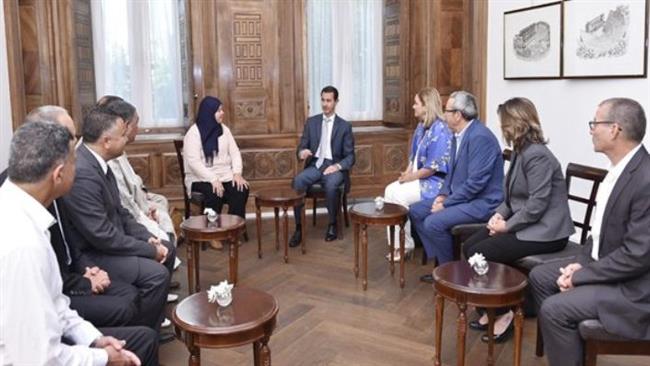
RNA - “The external interventions will continue with the aim of changing our identity and dividing us into communities and small groups,” Assad said on Monday, Syria's official news agency, SANA, reported.
The Syrian president made the remarks in Damascus during a meeting with a parliamentary delegation comprising members of a number of Tunisian parties headed by Mbarka Brahmi.
The external powers use similar methods to divide Arab nations, but under different titles and names, he stressed.
Elsewhere in his remarks, Assad stressed the need for the exchange of high-level delegations between Syria and Tunisia for further cooperation.
Such parliamentary delegations can be helpful in exchanging expertise and creating a state of dialogue not only about the current situation, but also about the future, the president pointed out.
For their part, members of the Tunisian delegation said that they came to Damascus to convey a message of support for the Syrian government and people, who have long resisted foreign-backed terrorist groups.
They also hailed the ongoing reconciliation process among various echelons of the Syrian society and their resolve to achieve victory against the foreign-backed militancy in their country.
Syria has been gripped by a deadly conflict since March 2011. The government has repeatedly blamed certain foreign countries for the spread of the devastating militancy.
Over the past few months, Syrian forces have made sweeping gains against Takfiri elements, which have in turn increased their acts of violence across the country.
Tunisia, too, has experienced violence since the 2011 uprising that ousted the country’s dictator Zine El Abidine Ben Ali, who was in power for over two decades.
The country has also been affected by the growing instability in neighboring Libya, which has been in chaos since former dictator Muammar Gaddafi was toppled and later killed in 2011.
847/940